‘Learning everyday’: Davic pinpoints gap in Marines’ stress inoculation
News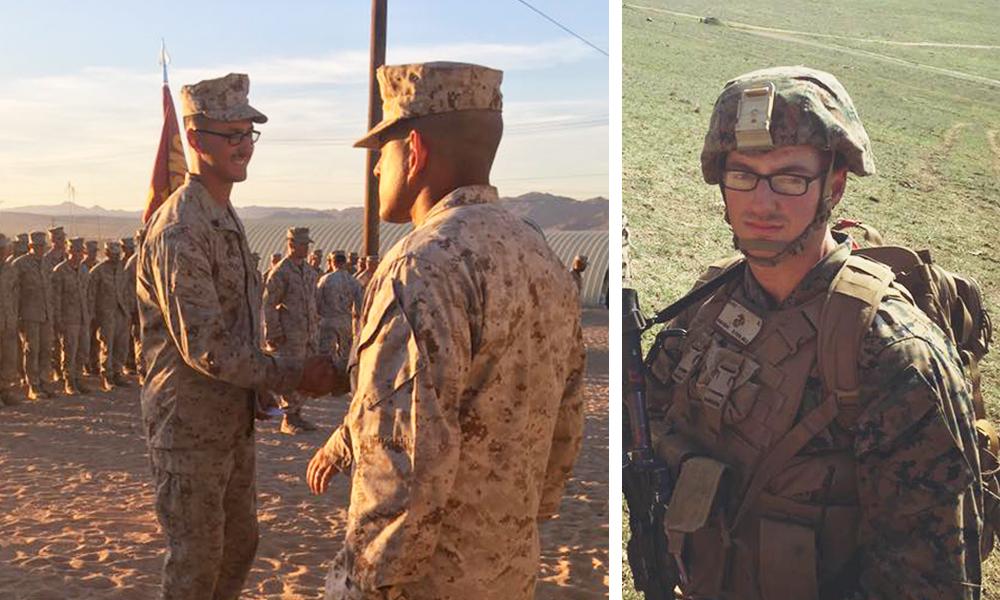
SUMMARY: Steven Davic, a JMU junior and one of seven finalists from Virginia for the Harry S. Truman Scholarship, is planning for a career in public service, through which he can help shift the Marine Corps stress regulation training to include breathing protocols.
Steven Davic, one of seven finalists from Virginia for the Harry S. Truman Scholarship, was introduced to alternative methods of regulating stress during his yearlong stint at the United States Marine Corps Warfighting Laboratory (MCWL) as a Non-Commissioned Officer Research Fellow. Corporals and sergeants are “the people [who] are most intimately connected to the ground level or front line,” he said. As the first sergeant to participate in the program, he was tasked with providing a different perspective on various experimental projects that will impact future Marine Corps operations.
The experiments on stress regulation struck a chord with Davic, who had previously witnessed the acute effects of stress on his lower-ranking Marines. As a leader, Davic had followed the Marine Corps model of “stress inoculation,” intentionally creating an exacting environment for new Marines to build up tolerance and become prepared for the battlefield.
But the JMU junior noticed a troubling shift in his junior Marines’ body language and an uptick in simple mistakes in areas Davic knew them to be capable. He began to question whether there was a better way to expose them to stress without compromising their wellbeing or ability.
“A suite of tools” to combat stress
At MCWL, Davic found it: breathing protocols. “This isn’t something like lighting candles and incense and meditating,” he said. “[It’s] a suite of tools that people can use in real time to help regulate—and in most cases, downregulate and reduce—their stress response.”
In order to demonstrate the protocols, Marine Corps infantry commander turned CrossFit gym owner David Herron took the plunge first, subjecting himself to an ice bath to artificially induce stress in the body. Then, he began box breathing, an exercise developed by former Navy SEAL Mark Divine.
“Imagine there’s a box on your chest,” said Davic. “If you put your finger on your bottom right point of the box, that's kind of where you're going to start at, and you're going to go clockwise.” Herron’s breathing pattern synced with the sides of the imaginary box: a deep inhale going up the right side of the box, holding his breath across the top, a deep exhale going down the left side and another breath hold across the bottom. Davic suggests 10-12 cycles or for up to 10-12 minutes to unwind and downregulate toward a “homeostatic baseline” after a stressful experience.
During the month-long experiment, Davic noticed the positive effects the exercise had on the Marines practicing it. Marines who had recently completed basic training and joined the unit just weeks before were “laughing and smiling and not losing discipline, not being dissident,” he observed. “But being comfortable and being happy … That's something I had never seen before.”
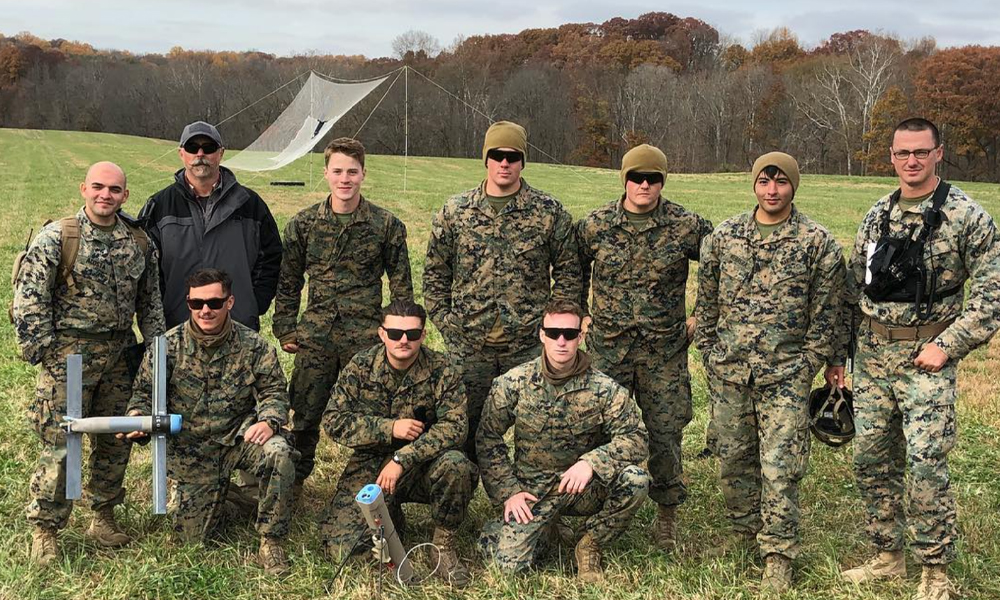
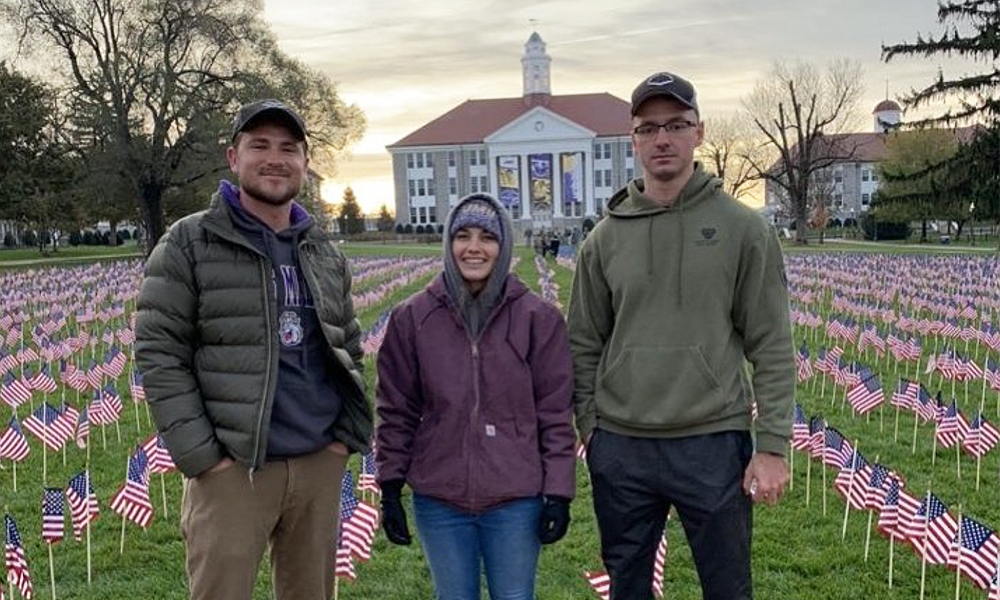
Davic extended his enlistment another six months so he could stay at MCWL and help bring up three more waves of sergeants and corporals. From this experience, he threw himself headlong into understanding the science behind breathing protocols and helping the Marine Corps implement these alternative strategies. As a JMU student, Davic is close enough to Washington, D.C. and the Marine Corps Base Quantico to maintain the professional relationships he cultivated in the Marine Corps.
Davic, a Newman Civic Scholar and Hinshaw-Warren Hillcrest Scholar, liked that JMU wasn’t a “cookie-cutter degree factory” but instead “a university where they really supported, cultivated and encouraged you to have your own individual experience and to make it work for yourself.” After finding a mentor in intelligence analysis professor Timothy Walton, who was previously in the Navy and served as an analyst in the CIA for over 20 years, Davic chose to triple major in anthropology, psychology and intelligence analysis.
Battlefield ready
“[There is a] famous saying, ‘Nothing in biology makes sense except in the light of evolution,’” Davic said. “Bodies, virtually across the entire animal kingdom, developed [the stress] response deep, deep back in time as an all-purpose, general response to any type of short-term physical crisis. To move you away from it, or to move toward it.”
|
"The six inches between your ears is the best weapon on the battlefield." — Steven Davic, Truman Finalist |
For humans experiencing crisis, the heart rate increases, blood pressure climbs and a fresh batch of glucose is released into the bloodstream “to get your body primed and ready for action,” Davic explained. “But just as stress promotes certain body functions, it also decreases and inhibits other body functions.”
Digestion and reproduction are inhibited with little consequence, but so are areas of the brain, like the prefrontal cortex, responsible for rational and complex higher-level thinking—crucial functions for military personnel and professionals working in high-intensity environments, such as nurses, police officers, firefighters and paramedics. Consequently, individuals are more likely to act impulsively, aggressively or riskily.
“While you can certainly imagine stress might be adaptive on the battlefield and in combat, so you can run quicker or carry more things at a short distance, most things on the battlefield aren’t like that,” Davic said. “You mainly need your brain. The six inches between your ears is the best weapon on the battlefield.”
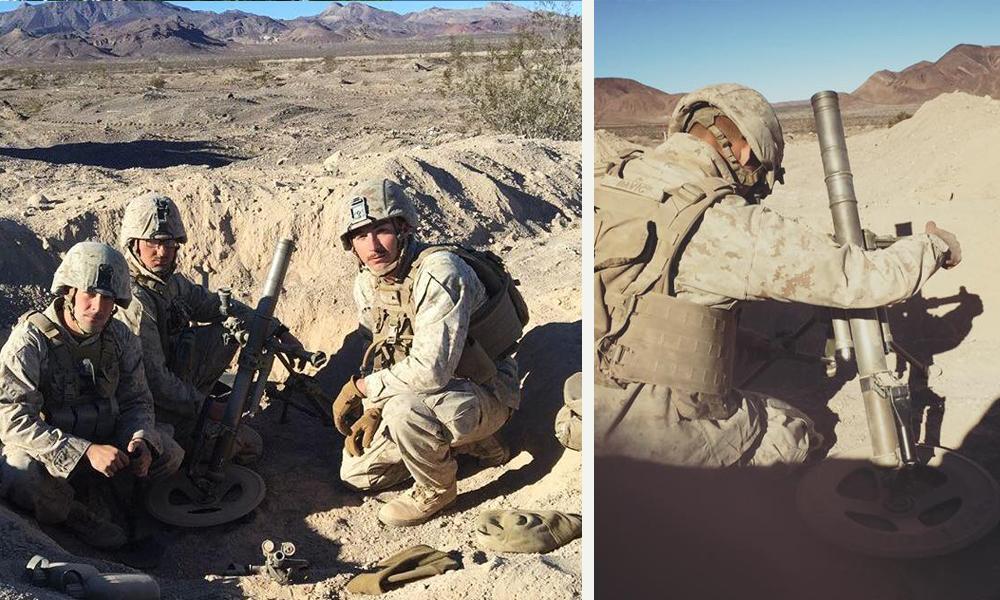
By focusing on breathing, the bodily function a person can consciously control, individuals can actually affect the unconscious aspects of the stress response, such as higher-level thinking. The "psychological sigh" is a breathing combination consisting of two inhales through the nose—the first long and deep, the second short—followed by a long exhale through the mouth. It is, "as we know now, the quickest way to downregulate your stress," he said.
Parents of young children might recognize that sequence as the final combination of breaths taken at the end of a hard cry. Davic said this is no coincidence; it’s the body’s innate way of restoring calm.
‘Real-time solutions’
|
"In life, you’ve got to pick something to put your attention, your focus and your energy behind, and this is something that I found worthwhile to pursue." — Steven Davic, Truman Finalist |
Box breathing and the psychological sigh are “real-time solutions that, say, a firefighter, Marine overseas or frontline nurse in a COVID-19 hospital ... can apply to their day tomorrow,” said Davic.
Davic acutely recognized the gap in the Marine Corps’ method of stress inoculation: it lacks the return to a baseline, without which individuals “start accumulating that stress and building it up over time, and it becomes something more chronic, something more serious—a mental health concern.”
His Truman Scholarship proposal earned him finalist status in the most competitive year to date with 845 applicants from 328 institutions. It is aimed at shifting the Marine Corps stress regulation training to include breathing protocols, a process Davic admitted will be long.
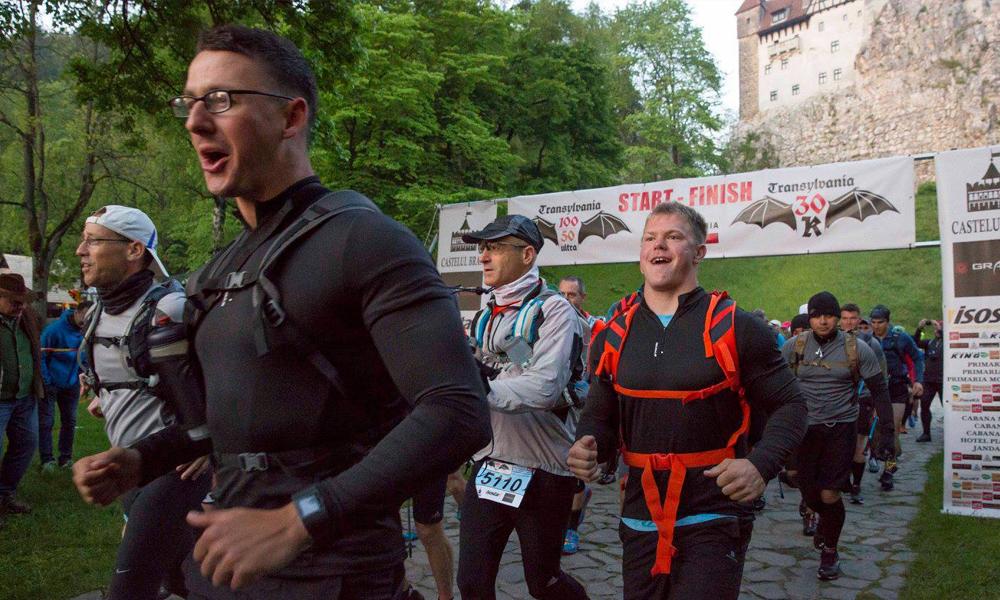
First, there are gaps in the science that must be filled. Then, the protocols need to transition through “the Valley of Death,” a phase of the process where highly anticipated prototypes seem to get stuck indefinitely, before they can get out of the lab into real-life scenarios. The protocols must be effective when practiced by increasingly larger groups. Finally, there is the arduous task of implementing a new policy in the highly organized military system.
If Davic is ultimately chosen to be a Truman Scholar, he will receive $30,000 to pursue a Master’s of Public Policy and Ph.D. in psychology at Georgetown University. If he doesn’t receive the scholarship, his plan won’t change. His personal mantra is “Learning everyday.”
“Truman makes what I want to do a little bit easier, but it doesn’t change any aspect of it at all," he said. “In life, you’ve got to pick something to put your attention, your focus and your energy behind, and this is something that I found worthwhile to pursue.”
